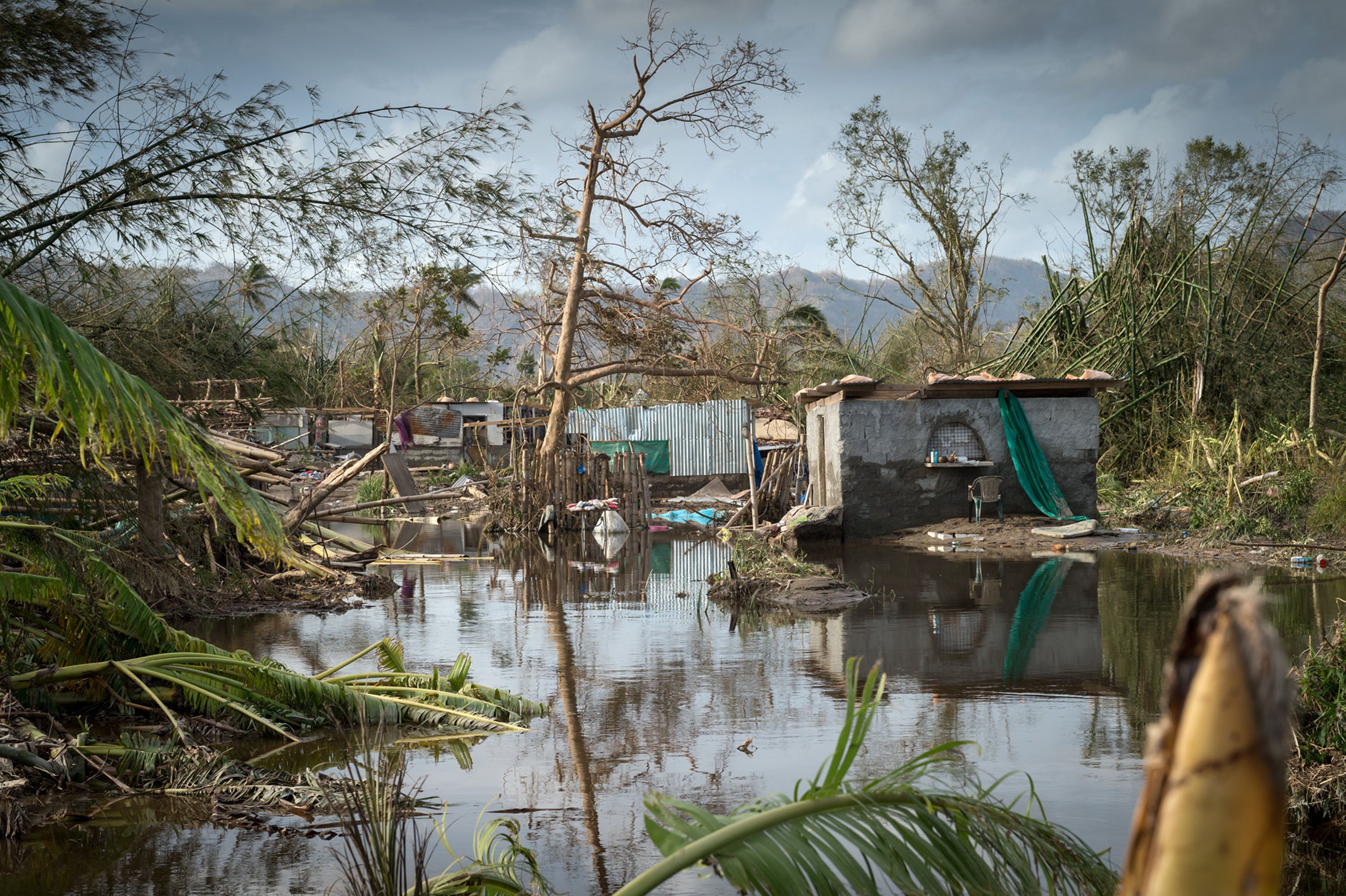
In late October, a monster storm named Lola hit the Southern Hemisphere, a week before the official start of the cyclone season, producing the earliest recorded Category 5 cyclone. Violent winds battered the island nation of Vanuatu, reaching 295 kilometers per hour (183 miles per hour). Lola created a trail of destruction that left more than 40,000 children in need of humanitarian assistance and caused widespread damage to homes, schools, infrastructure and crops. When it struck, Vanuatu had barely picked up the pieces from record-breaking disasters in March that wreaked havoc within 48 hours of each other: two Category 4 cyclones named Judy and Kevin.
We know that climate change in the region is linked to the increasing intensity and earlier onset of such extreme weather events. Not to mention sea level rise, changing weather patterns and ocean warming. The costs are brutal; every year, small island nations in the Pacific incur an estimated $1.075 billion in economic losses, equivalent to at least 5 percent of their combined GDP, while more than 50,000 Pacific people are displaced consequent to climate and disaster-related events.
My own country, Tonga, has been stuck in an exhausting loop of rebuilding from at least six severe cyclones and several droughts, all occurring within the past 10 years. Having followed climate issues for more than a decade, it is agonizing to witness the ongoing reluctance at the international level to unlock the climate finance support needed to cope with these calamities. This is why climate-vulnerable nations, including Pacific island nations, must insist on the operationalization of a Loss and Damage Fund at the United Nations Climate Change Conference COP 28 this week.
This year’s COP marks the culmination of the world’s first “global stocktake” of the Paris Agreement. This progress report, which will happen every five years, will assess our performance in curbing greenhouse gas emissions in order to keep global temperature rise to 1.5 degrees Celsius above preindustrial levels.
We are way off the mark.
Current trajectories show that global emissions are likely to climb 10.6 percent within the next seven years by 2030, and even with combined climate pledges, amount to a 2.5 degree warming by the end of the century.
In the Pacific, this level of warming would result in an 0.9 meter rise (nearly three feet) in sea levels by 2150, devouring coastlines while also degrading 90 percent of coral reefs and collapsing fisheries production.
So real is the existential threat to Pacific territories, livelihoods and identity that countries recently issued a joint declaration preemptively reaffirming their sovereignty over land, natural resources and maritime zones “notwithstanding any physical changes connected to climate change–related sea-level rise.” Pacific leaders called for a substantial boost in climate finance from all development partners to accelerate decarbonization and build climate resilience, especially for vulnerable communities.
In 2009, developed countries committed to providing $100 billion in climate funding to developing countries by 2020. Not only did they fail to deliver on this promise, but the amount is actually dwarfed by the pressing needs of vulnerable countries, where adaptation needs alone are 10 to18 times greater than the international public finance available.
In fact, the Group of 20 (G20) intergovernmental forum states that the world needs at least $5.9 trillion by 2030 to deliver on the goals of the Paris Agreement, whereas current finance flows only reached about $1.27 trillion in 2021–2022. While this is twice the climate finance delivered two years ago—a welcome sign of progress—it is still, by comparison, just over half of worldwide military spending last year ($2.24 trillion).
After decades of negotiations, countries agreed to the development of a Loss and Damage Fund at last year’s COP, but now they have to finance it and get it up and running. Although the talks leading up to the summit have led to certain recommendations, tension between the parties has complicated the process. For COP 28 to be successful, outcomes must ensure that the needs of vulnerable developing countries and communities are prioritized, including fast-tracked and uncomplicated access to finance.
For the Global South, these issues are fundamentally linked to global accountability, justice, trust and survival. Between 1970 and 2021, more than two million people died from weather, climate and water-related disasters, with 90 percent of these deaths occurring in developing countries. The 12,000 disasters reported across the world over this period, translated to $4.3 trillion in economic losses, 60 percent of which was incurred by developing economies, further hindering their development.
Small island nations contribute less than 1 percent of greenhouse gas emissions, while for least developed countries, it is 3.3 percent. Yet, by far, these groups suffer the most from the disastrous effects of climate change, exacerbated by insufficient and lagging global action.
As local humanitarian Flora Vano stated in the aftermath of Cyclone Lola in Vanuatu: “The climate crisis has us trapped in a cycle of prepare and respond, leaving us with little time to recover after each new disaster…. My community, my country is facing the brunt of the climate crisis. The time for talking is over. We need action now.”
COP 28 is a crucial juncture for climate action. It is a vital moment for the international community to heed the call of climate-vulnerable countries and urgently get back on the path to achieving the Paris Agreement. As Vanuatu and so many other Pacific nations scramble to rebuild before the next storm comes, there are millions of lives and livelihoods on the line.
This is an opinion and analysis article, and the views expressed by the author or authors are not necessarily those of Scientific American.
